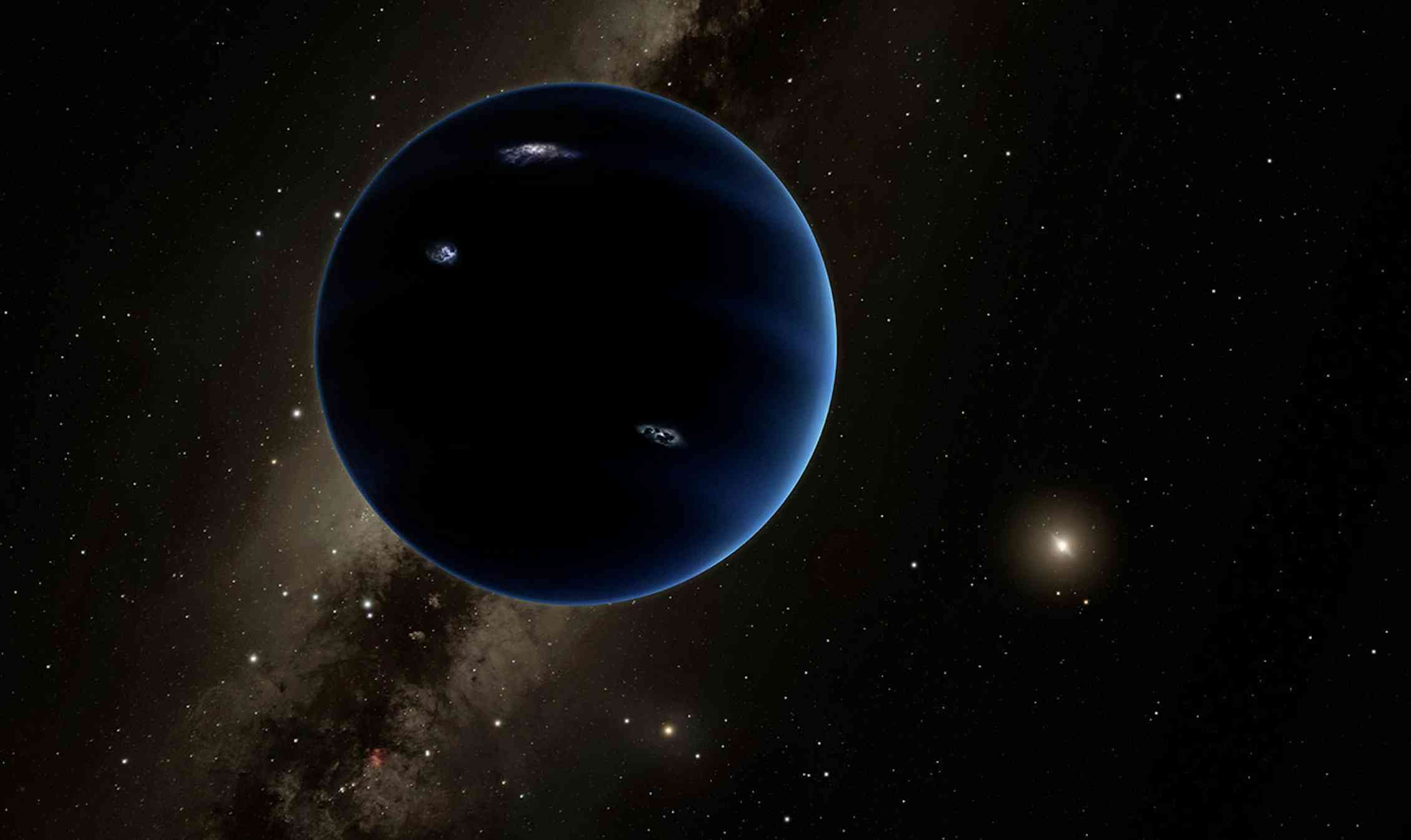The "planet X" hidden in our solar system 🪐
Published by Adrien,
Source: The Conversation under Creative Commons license
Other Languages: FR, DE, ES, PT
Source: The Conversation under Creative Commons license
Other Languages: FR, DE, ES, PT
Follow us on Google News (click on ☆)
By analyzing the movements of certain objects in the solar system located beyond Pluto, it becomes apparent that observations do not align with theory, and the simplest explanation would be the presence of a ninth planet. Astronomers are on the case.

If planet X exists, it is likely a gas giant similar to Neptune.
NASA/Caltech/R. Hurt (IPAC), CC BY
Our solar system is a particularly crowded place. Millions of objects move within it, whether they are planets, moons, comets, or asteroids. And every year, we discover more and more objects (usually small asteroids or comets) joining the solar system.
In 1846, astronomers had already identified the eight main planets. But that hasn't stopped scientists from searching for others. Over the past 100 years, we've discovered smaller distant bodies that we now call dwarf planets, which is the current classification of Pluto.
The discovery of some of these dwarf planets has given us reasons to believe that something else might be lurking on the outskirts of the solar system.
A ninth planet?
It's no coincidence that astronomers spend hundreds of hours trying to locate a ninth planet, or "planet X." Indeed, the solar system as we know it doesn't quite make sense without it.
All objects in the solar system orbit the Sun. Some move quickly, others slowly, but all obey the laws of gravity. Everything with mass is subject to gravity, including you and me. The heavier an object, the greater its gravitational pull.
A planet's gravity is so significant that it affects the way things move around it. This is what we call its "gravitational pull." Earth's gravitational pull is what keeps everything grounded.
Moreover, our Sun exerts the strongest gravitational pull of all the objects in the solar system, and it's essentially the reason why planets orbit around it.
It's through our understanding of gravitational pull that we get the strongest clue pointing to the possibility of a Planet X.
Unexpected behaviors
When observing very distant objects, such as dwarf planets located beyond Pluto, their orbits appear somewhat unexpected. They move in very large elliptical (oval-shaped) orbits and seem clustered together.
When astronomers use computers to model the gravitational forces necessary to cause these movements, they find that such phenomena would require a planet with a mass at least ten times that of Earth.
This is fascinating, but it begs the question: where is this planet?
The current challenge lies in trying to confirm that these predictions and models are accurate. The only way to do so is to find planet X, which is certainly easier said than done.
The hunt continues
Scientists worldwide have been searching for visible evidence of planet X's presence for many years.
According to computer models, planet X is believed to be at least 20 times farther from the Sun than Neptune. Researchers are trying to detect it by looking for sunlight it might reflect, just as the Moon shines by reflecting sunlight at night.

The Moon shines at night because it reflects sunlight. If planet X exists, we hope the light it reflects will help us locate it.
Illustration provided by Pixabay
However, because planet X is so far from the Sun, it is expected to be very dim and difficult to detect, even with the best telescopes on Earth. Additionally, it cannot be searched for at just any time of the year.
There are only small nightly windows when conditions must be perfectly aligned. More precisely, we need a moonless night when our observation point is facing the correct part of the sky.
But don't lose hope just yet. Over the next decade, new telescopes will be built, and new sky surveys will be conducted. They may finally give us the opportunity to prove or disprove the existence of planet X.